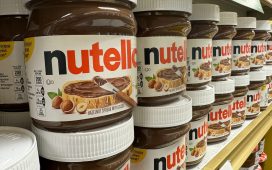Sales at Boohoo fell at Christmas as consumers returned to high street shops and longer delivery times reduced demand.
The fast-fashion retailer recorded revenues of £638mn in the four months to December 31, down 13 per cent on a constant currency basis against the same period in 2021.
The company said revenues would decline by about 12 per cent for the full year. Boohoo makes the majority of its sales in the UK and the US, which suffered the biggest falls year on year.
The company has responded to the high cost of inflation by cutting costs, including closing one of its UK warehouses. It has slashed inventory by 27 per cent and 100 jobs are likely to be lost in London, according to people familiar with the situation.
John Lyttle, Boohoo chief executive, said the company’s performance was “in line with expectations and reflects the normalisation of the channel shift online over the last 12 months”.
He expected cost inflation to “begin to moderate in the second half of the year”.
Online retailers such as Asos and Boohoo have struggled since the end of pandemic restrictions, in part due to competition from Chinese competitor Shein, while bricks and mortar companies Next and Marks and Spencer performed better than expected during the festive period.
“The impact of the recent [UK] postal strikes over the festive period highlighted a flaw for online retailers which hampered Boohoo’s sales figures, while those with physical stores saw a spike in customers returning after shopping habits changed during the pandemic”, said Sarah Riding, a retail partner at Gowling WLG.
“The year ahead will pose a number of challenges for Boohoo with a potential recession and consumers cutting spend on non-essential items, while rising inflation will continue to increase costs”, she added.
Analysts at Jefferies said they expected the climate to remain challenging for Boohoo, although were “encouraged to see management successfully controlling the factors it can (inventory, costs)”.
Boohoo’s share price fell 4 per cent in early morning trading. Its has lost almost 90 per cent of its value since a pandemic-induced high in June 2020.










